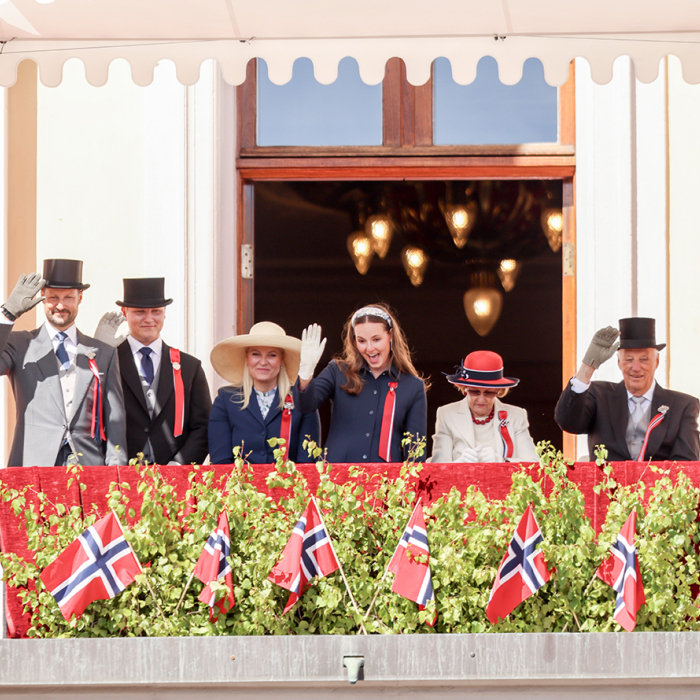In the Amazon rainforest
Last week His Majesty The King fulfilled a long-held dream when he spent four days living with the Yanomami people in a remote part of the Amazon River basin.
The King visited Demini, the village of the Yanomami people in Brazil’s Amazon River basin, along the border of Venezuela. King Harald received a warm welcome from Daví Kopenawa, one of the tribe’s leaders and spokesman, and Lorival, one of the village’s oldest and most respected Yanomami shamans. The trip took place at the invitation of the Rainforest Foundation Norway.
Slept in a hammock
The village of Demini consists of a large, circular structure with an open courtyard in the middle. All 120 inhabitants live in this building and sleep in the hammocks hanging from the ceiling. Small fires keep the temperature warm at night. King Harald was given his own hammock to use during his stay.
From Monday, 22 April to Thursday, 25 April, King Harald lived with the Yanomami people and was afforded a unique glimpse into the tribe’s culture and way of life. The tribe survives by hunting, fishing, gathering edible plants in the forest, and cultivating its own gardens. King Harald ate their traditional diet and was served wild boar and wild turkey, as well as palm fruit and root vegetables from the communal gardens.
Joined the hunters in the rainforest
The King had the chance to accompany the village’s best hunters into the rainforest. The hunters demonstrated how they use the calls of the prey of the animals they are hunting.
“It was fascinating to hear how they can imitate all of the animal calls found there as a way of luring in their prey; everything from jaguars and monkeys to parrots,” said King Harald.
The hunters use a bow and arrow with extremely accurate aim. Poison made from the bark of a tree is applied to the tip of the arrows.
The King also paid a visit to the communal gardens where the Yanomami raise root vegetables, bananas, fruit, herbs, tobacco and various plants that are used for everything from fish poison to perfume to herbal remedies.
A long-time dream
When the Norwegian division of the World Wildlife Fund was founded in 1970, the King – then Crown Prince Harald – served as its president. Since that time, a trip to the rainforest has been high on the King’s wish list:
“This has been a dream of mine ever since my time with the World Wildlife Fund. So when the opportunity arose, I took it,” said King Harald.
An interpreter helped the King to speak with the villagers, and young and old alike crowded around him when he showed them photographs from his own family album. The King had brought an album containing photographs of the history of the Royal Family from the days of King Haakon to the present. The photographs and stories the King told were met with great enthusiasm, and he presented the album to the tribe as a gift.
Prior to his departure, the King was draped with parrot feathers as a special mark of honour. The decorative feathers are tied around the upper arm and used by the male villagers on special occasions.
“This has been a fantastic trip. Absolutely fabulous,” says King Harald.
Dramatic history
The Yanomami are the largest and best known group of indigenous people in the Amazon, living in much the same way as their ancestors did. In the late 1980s their area was invaded by several thousand gold-diggers, and 15 per cent of the population died of disease and violence over a two-year period. The Yanomami territory was officially recognised by the Brazilian Government in 1992.
Dag Hareide, Director of the Rainforest Foundation Norway, accompanied the King on the journey.
“His Majesty The King expressed great satisfaction over the results of the Norwegian support,” said Mr Hareide. “The Yanomami were also proud and pleased to be able to welcome the Norwegian King to their village. This is the first time that a head of state has visited the Yanomami territory.”
Current news

Happy Constitution Day!
The Royal Family was in attendance on the Palace Balcony when the children's parade reached the Palace Square at 10:30 this morning. From there, they could greet more than 26,000 children from 109 schools taking part in Oslo's children's parade this year.

Celebrating May 17th
For more than 100 years, the Royal Family has greeted the Constitution Day children’s parade in Oslo from the balcony of the Royal Palace.

 Enlarge
Enlarge
















